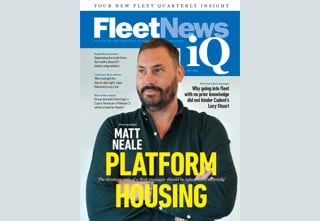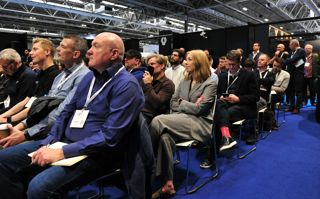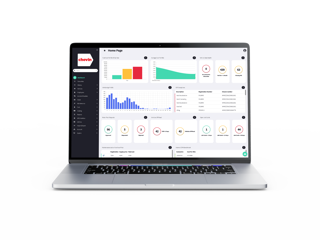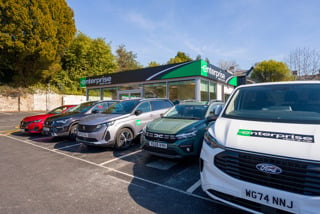Fuel is the second largest expense faced by fleets, and cutting mileage can have a significant impact in reducing fuel costs.
It isn’t always possible or appropriate to cancel journeys: delivery of goods or services can be what a business is built on, while there are also real benefits in building relationships with face-to-face contact.
But cutting the distance travelled in company cars where possible can have a positive impact on far more than fuel budgets.
A Fleet News poll in 2009 showed that more the two-thirds of respondents had taken action to reduce mileage because of economic pressures.
Mileage capture and fuel cost management specialist TMC says managing mileage more effectively can lead to higher savings than focusing on the cost of fuel and choosing more efficient cars.
Managing director Paul Jackson said: “Saving 15 miles per driver per week can be achieved very quickly and is a direct cost saving that will entirely offset the threatened increase to £1.20 per litre.
“In contrast, it is not easy to negotiate meaningful discounts on pump prices, even if you have a large fleet. A 2p per litre saving will only recoup a quarter of the coming price increase.
“Improving fuel economy is a good long term strategy but squeezing an extra couple of miles out of every gallon would still only get you half way to the saving delivered by a modest reduction in weekly mileage.”
According to the Energy Saving Trust, occasional spot checks of drivers’ expense claims for fuel and mileage verification can help prevent drivers claim for additional miles or claim for personal mileage.
But the organisation also recommends a level of flexibility, pointing out that motorway mileage around a built-up area will probably be more time and fuel-efficient than being snarled up of the shortest route through a town or city.
It can be difficult to impose a blanket reduction on mileage, particularly if business has begun to pick up.
For some organisations, effective monitoring of mileage claimed through expenses is a key area where savings could be made.
Care should be taken to avoid staff turning up to the same off-site meeting in different vehicles.
Lift share schemes can help reduce mileage as well as commuting costs and there are dedicated websites that can help co-ordinate such initiatives, like liftshare.com.
Nick Chambers, head of implementation at The Miles Consultancy, said: “Typically organisations don’t really use it as a mechanism for reducing mileage. Providing you can monitor mileage effectively, the employee gets an extra 5p per mile that’s free from tax, and it’s incredibly under-utilised part of the legislation.”
In terms of managing the ‘grey fleet’ current advice from the Energy Saving trust recommends that anyone travelling more than 100 miles would be better serving the company by using a rental car than claiming mileage for their own vehicle.
The organisation suggests a modest hire car will typically have lower CO2 emissions and therefore a reduced carbon footprint compared with many grey fleet vehicles.
Using public transport can sometimes be expensive, but good forward planning may result in lower cost train travel.
Satellite navigation systems – whether a stand-alone unit in vehicles, or part of a telematics system – can pay for themselves in a relatively short time by allowing vehicles to be used more efficiently.
Many unnecessary miles are wracked up by drivers getting lost so navigation systems can be an important tool in keeping mileage to a minimum.
Meanwhile telematics systems can analyse routes, vehicle speeds and driving styles giving fleet operators access to a vast range of data that allows more effective use of their vehicles and cuts in mileage.
Chambers says one effective strategy employed by clients to reduce mileage has been to have one-to-one conversations with drivers who are at risk of exceeding the previous year’s mileage at any given time.
He recommends comparing year-to-date figures with the previous year and discussing it with members of staff.
“It could lead to better planning and utilisation of vehicles and employees, he said.”
He also pointed to companies involved in the construction industry where staff are requited to commute to sites, which could result in unnecessary mileage being travelled by failing to deploy the nearest employees to the location.
If companies have managed to survive the first 18 months of the recession by taking action to reduce mileage on their fleets, chances are many of those measures will still be required in the early stages of the fragile economic recovery.
How to reduce grey fleet mileage
Energy Saving Trust’s typical travel hierarchy listing travel options in order of desirability:
- • Tele- or video conferencing
- • public transport
- • pool car
- • borrowing a colleague’s company car
- • car hire
- • car club car
- • grey fleet






















Edward Handley - 28/05/2010 11:42
Satnav can be very effective in reducing mileage by preventing drivers from getting lost, but as with all technology, users need to understand the equipment to get the best results. Most drivers set their preferences when they first get the instrument, or a vehicle with a built in system, and many never change them. To get the best performance from a satnav, and to reduce mileage effectively, the settings need to be adjusted, if necessary on a journey by journey basis. Most busy high mileage drivers naturnally set their satnav for "quickest route" which usually means following the motorway network for as much of the journey as possible. Motorway journeys are quicker mainly because higher speeds are possible over a prolonged period and although the MPG figure may go up, any saving achieved is frequently more than offset by the increased mileage driven. Perhaps it would help if all satnavs were be built with a default setting for the "most economical route" - but I have never seen one. Route planning is never a simple exercise as many factors need to be taken into consideration, not least of which is safety. The motorways are our safest roads and the old Confucian say "What be the point of saving candles if the result be twins" is very relevant - theres no point saving fuel if the result is more collisions. All journeys need at least a little planning, and leaving it all to a small computer is not the answer.